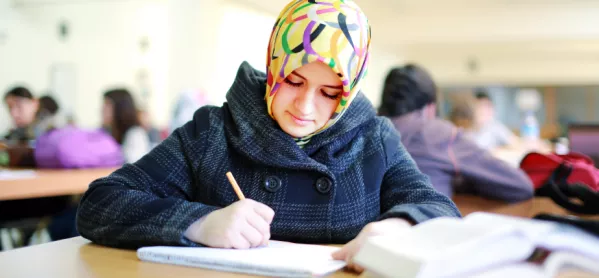Instilling a respect for the beliefs and cultures of others in young people is an admirable objective. It’s rendered all the more imperative by the fears stoked by ethnic and religious supremacists of opposing stripes.
The liberal and democratic desire for mutual respect and understanding between cultures is not only undermined by the ideology and actions of violent extremists; it also faces the academic claim that some cultures are fundamentally incompatible, and will inevitably come into conflict – a view popularised in 1996 by political scientist Samuel Huntington in The Clash of Civilizations.
In teaching respect for the beliefs and lifestyles of others, the operative word is "others".
Edward Said, in his groundbreaking 1978 book, Orientalism, pointed out that Europeans define themselves in opposition to the "other" – predominantly the cultures of the East. The foundational values of western culture, those of rationalism, individualism, liberty, democracy, industriousness – everything that contributed to the process of "modernisation" – are constructed to stand in sharp relief against the allegedly reactionary, irrational and stagnant societies of the Middle East and Asia.
In the formal, examined curriculum, respect for other cultures and beliefs is largely left to religious studies and PSHE.
The influence of Islamic culture
Elsewhere, the West’s foundation myth is faithfully reflected: all that is progressive and modern arose sui generis in Europe, having its early origin in Classical Greece and Rome, but only really becoming operational through the Renaissance and the Enlightenment. If God wasn’t actually an Englishman, he was at least recognisably European.
The Monty Python question about what the Romans have done for us might well be asked of the contribution of Islamic (and perhaps more specifically Arab-Islamic) culture. And the question deserves to be answered across the curriculum. We owe Islamic culture not just respect, but awe; its contribution to "our" inheritance turns out to be substantial.
The Islamic world was the prism through which the light of cultures further east passed to Europe, bringing paper, gunpowder and citrus fruits from China; rice, cotton, chess and even "Arabic" numerals from India.
Islamic scholarship also saved a great deal of the knowledge of the ancient Greek world from being lost. Much of the work of Aristotle, Galen and Ptolemy came to us via Arabic translations, many made in Baghdad, and much of this precious cargo came through Moorish Spain or Palermo in Sicily, with its febrile mix of Norman, Jewish and Arab life and thought. Violet Moller’s new book, The Map of Knowledge: How classical ideas were lost and found, brings this episode marvellously to life.
Arab-Islamic culture was centuries ahead of Europe in the early Middle Ages. Contact brought us coffee, carpets, shampoo, cheques, even the three-course meal. The Crusaders brought back "sweet salt", or sugar.
Arab-Islamic science was formidable, at a time when the "West" was still in the reactionary grip of the medieval schoolmen: the pinhole camera, chemical distillation techniques, the windmill and the crank-shaft, specialist surgical instruments. Transmission took time: "Arabic" numerals, actually from India and known to Islamic scholars from the 9th century, were brought to Europe by Fibonacci three centuries later, and only became widely known and used in England two centuries after that.
Rather than being defined in terms of its difference from the "other", European "civilisation" is best thought and taught about in terms of what we share. Our curriculum should take every opportunity to celebrate both the dizzying diversity of our intellectual sources and the commonality of our culture.
Kevin Stannard is director of innovation and learning at the Girls' Day School Trust. He tweets @KevinStannard1




